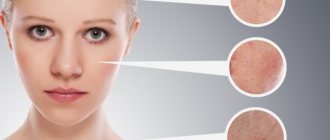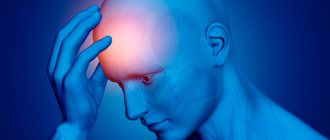Treating a nervous breakdown at home
Have you encountered such a thing as nervous exhaustion?
The disease has synonyms: asthenic neurosis, neurasthenia, nervous fatigue, nervous weakness, chronic fatigue. This is one of the forms of neurosis that is very common in our modern world.
Defined as a type of psycho-emotional state that occurs as a result of stress, increased intellectual or emotional stress. Nervous exhaustion (NFF) can be considered both a symptom and a precursor of major depression.
This condition negatively affects cognitive abilities, memory, physical capabilities and other biological indicators.
In general, NI prevents a person from working normally, relaxing, communicating with people – living!
If your body has not coped with prolonged stress, heavy loads (emotional and physical), or coped, but until a certain time, and then gave up, nervous exhaustion sets in.
The causes of nervous exhaustion can be very diverse:
- abnormal level of physical activity, which completely exhausts the body;
- regular mental activity associated with monotonous, boring work: proofreader, operator, accountant;
- irregular working hours;
- stress;
- the presence of constant irritants in life;
- chronic lack of sleep;
- unbalanced diet (which provokes a lack of vitamins);
- infections;
- surgical intervention;
- injuries;
- intoxication (alcohol, smoking, drugs, medications);
- somatic diseases;
- in the period after pregnancy.
The above processes provoke chemical disturbances in the brain.
A neurasthenic state, for a more precise description, can be called a “burnout” of the body’s forces.
Recognizing this disease is not an easy task. And all because it is often confused with depression, laziness, bad character or somatic illness.
So it turns out that a person is trying to cure depression and headaches. VSD. but in fact, it eliminates not the cause, but the effect (neurasthenia).
And the condition, naturally, will not improve until the root problem is cured.
The following are signs of nervous exhaustion:
- increased irritability, emotional instability, short temper;
- sometimes a person can even be very cheerful from the outside, but at the same time constantly talk “about nothing”, not being aware of his problems and mistakes;
- impatience: the patient becomes very aggressive because of the waiting (have you noticed how differently people handle queues?);
- inappropriate attitude towards large crowds of people;
- loss of sense of humor;
- constant feeling of weakness, fatigue: even after sleep;
- regular headaches;
- inability to concentrate, constant distraction by external factors (light, sound, own thoughts);
- ringing in the ears, blurred vision;
- weight loss, appetite;
- decreased attraction to the opposite sex or sexual dysfunction;
- insomnia: a person cannot fall asleep due to the flow of thoughts, suffers from nightmares;
- increased level of anxiety, phobias;
- chronic forgetfulness, impaired coordination, speech;
- labored breathing;
- concomitant diseases of the body: infections, back pain, or other problems to which a person is predisposed;
- bad habits as a symptom that a person is trying to overcome negative conditions;
- low self-esteem, loss of self-confidence.
As you can see, this disease can “put on the mask” of many other disorders in the body, due to the versatility of its manifestations.
When going into the forest, take care of protection from ticks. Otherwise, you can get cerebral encephalitis.
Thunderstorm headache medicine Betaserc - reviews of patients and doctors about which we collected and analyzed in our material.
Symptoms of nervous exhaustion in women and men are often similar to the following diseases:
- vision: spasm of accommodation;
- infectious and skin diseases: chronic mononucleosis, herpes, neurodermatitis, psoriasis, tonsillitis (a consequence of lack of immunity);
- gynecology: cervical erosion, thrush;
- musculoskeletal system: osteochondrosis of the cervical spine, muscle pain, joint problems;
- cardiovascular system: arrhythmia, tachycardia, vegetative-vascular dystonia, circulatory disorder of the brain;
- hematopoietic system: low hemoglobin;
- endocrine disorders: diabetes mellitus, sexual dysfunction;
- Gastrointestinal tract: functional digestive disorders, nausea, vomiting, dysbacteriosis, chronic gastritis, ulcers.
It turns out that if you have neurasthenia, you can mistakenly go to a neurologist, therapist, ophthalmologist, dermatologist, orthopedist... All these doctors will most likely see “their” disease and treat it.
However, this will not eliminate your problem and your overall condition is unlikely to improve. Cure one thing and the problems in the body will not stop.
It is advisable to seek help from a competent psychotherapist if you know and realize that the causes of neurasthenia are really present in your life.
The state of the body after the onset of exhaustion will definitely negatively affect the functioning of virtually all of its systems (selectively).
For comparison, think about whether a car can start without gasoline? Will the remote control work with dead batteries? A person, by nature, also “breaks down” when one of his systems exhausts its reserves.
However, many make certain volitional efforts, or due to habit, lead a lifestyle that causes more and more harm every day.
Alas, we are not eternal, and nervous exhaustion also reaches peak states:
- apathetic depression, in which a person is unable to do anything;
- exacerbation of chronic diseases;
- mental illness (even serious, associated with personality disorders or incorrect perception of the world, manic, obsessive states);
- suicide;
- social consequences: deterioration of relationships with loved ones, problems at work;
- inability to live fully and happily.
There is a suspicion that no one wants such states for themselves.
Of course, when you feel the first symptoms of nervous exhaustion. You should definitely start treatment. However, it is much easier to do everything on your part so as not to acquire neurasthenia at all.
And believe me, preventive measures are quite simple. They should become a habit for every person.
Typically, the treatment of nervous exhaustion and the elimination of its consequences and symptoms is carried out in a comprehensive manner. Doctors can prescribe herbs and medications that normalize the functioning of the nervous system.
But the main thing is a qualitative change in the usual, harmful way of life.
This is normal sleep, proper rest, healthy eating, elimination of stress factors, water procedures, diet (not for weight loss, but simply eliminating harmful foods from the diet), regular vacation.
If you love and respect yourself, don’t create problems and don’t overwhelm yourself with work, then your health will not suffer.
Don't be your own enemy!
Among the causes of nervous exhaustion are past stress, post-traumatic conditions, and severe overwork. Signs of nervous exhaustion may include cognitive, psychoemotional or psychosomatic disorders. This condition requires timely treatment.
Exhaustion of the nervous system occurs as a result of long-term overstrain of all the forces of the body. Among the causes of this condition:
- long-term lack of sleep;
- psycho-emotional stress;
- prolonged exposure to stress;
- depression;
- severe illness;
- mental and physical stress.
The nervous system can become depleted due to prolonged exposure to stress. This condition occurs as a result of overwork of the body. Each person has his own reserve of strength, which is replenished during a night's rest. If you expend energy for a long time, for example, doing heavy physical labor or being exposed to stress, while sacrificing hours of sleep, the body does not have time to recover. This particularly applies to the human nervous system.
For the development of this condition, one negative factor is not enough. Exhaustion develops from several factors at once, such as extreme fatigue, lack of nutrients and sleep disturbances.
Disruption of the central nervous system is a harbinger of depression. At the same time, exhaustion can develop against the background of an existing depressive state or asthenic syndrome.
When the nervous system is depleted, symptoms and treatment largely depend on the patient’s health status. Nervous exhaustion is characterized by a variety of symptoms, both cognitive and psychoemotional disorders.
Cognitive impairment is a decrease in mental abilities due to some negative factor; in this particular case, nervous exhaustion is such a factor. Cognitive impairment is characterized by the following symptoms:
- decrease in intellectual activity;
- impaired concentration;
- irritability;
- inability to concentrate on the task at hand;
- memory disorders.
With nervous exhaustion, symptoms of cognitive disorder appear against the background of excessive intellectual or psycho-emotional stress.
This happens, for example, if it is necessary to complete a complex project in a short time and a person pays all his attention to work, forgetting about a balanced diet and a normal night’s rest.
With nervous exhaustion, the symptoms of psychoemotional disorder are as follows:
- apathy;
- worsening mood;
- constant feeling of fatigue;
- sleep disturbance;
- decreased libido.
It cannot be said unequivocally that these symptoms are observed in every case of pathology. In many ways, the signs of nervous exhaustion depend on the duration of the negative impact of stress or overexertion on the body of a particular patient.
Possible psychosomatic symptoms of nervous exhaustion:
- pain in the heart area;
- aching headache or migraine;
- dizziness;
- panic attacks;
- decreased appetite;
- worsening sleep;
- dyspnea;
- sudden weight loss.
Psychosomatic disorders can manifest as blurred vision, changes in blood pressure and other symptoms characteristic of vegetative-vascular dystonia.
Symptoms of nervous exhaustion in women after childbirth include irritability, loss of energy, and mood swings.
Having understood the signs of exhaustion of the nervous system, you should not delay a visit to a neurologist. For nervous exhaustion, treatment is aimed at normalizing the activity of the patient’s central nervous system.
- There are forms of neurosis in which the bulimic (constant feeling of hunger and the desire to remove it) or anorexic (feeling of rejection of food) factor predominates;
- Obsessive-compulsive neurosis is common, the symptoms of which are expressed in the patient’s daily performance of any ritual actions (this could be: washing hands, wearing the same clothes, cooking according to certain rules, and much more);
- When patients experience cardiac neurosis, it is important to distinguish the symptoms and treatment of this condition from true angina and coronary artery disease. In case of nervous disorders, the signs of the disease can quickly self-destruct when the factor that caused them (stress, negative emotions, conflict) is eliminated, while the symptoms of heart disease are alleviated by taking special medications, for example, nitroglycerin. In addition, complaints of people with neuroses about pain in the heart are often not accompanied by objective signs (an increase in the number of heartbeats, an increase in blood pressure); in people with cardiac pathologies, these signs are one of the main ones;
- Anxiety neurosis manifests itself as emotional tension, motor excitability and physical stiffness. People with increased anxiety cannot communicate normally with others, relax and unwind.
How to relieve nervous tension?
Treatment of overstrain of nerve connections is aimed primarily at harmonizing well-being. That is, the main task is to make a person realize the problem and show him ways out of an uncomfortable situation. So, what is needed to relieve tightness and increased excitability of the central nervous system?
Awareness
As mentioned above, you need to remove the cause of this condition by understanding the root of the problem (identify the provocateur). And choose the most suitable technique that helps you quickly achieve emotional peace and lack of tension.
Fear can paralyze all adequate and effective attempts to cope with the upcoming stress. You need to learn to control and eliminate them in order to replace them in the future with a feeling of peace and tranquility.
Body tightness and overexertion can cause negative emotions. Everyone is familiar with resentment, anger, anger, envy, pride and other unpleasant feelings. But not everyone wants to hang around with them like they’re carrying them around.
To feel lighter, it is enough to speak out all the accumulated emotions with a negative charge “-”. Write a letter, SMS or make a call, but get rid of the feeling that is tearing you apart!
All positive desires must be realized. Otherwise, the desire that arises is blocked by a white brick, falling to the bottom of a dark closet. All suppressed aspirations and dreams are emotional clamps that block the feeling of joy and happiness.
In return, they are able to leave only suffering of the soul and a feeling of constant dissatisfaction with themselves. Subconsciously, prohibitions work unpredictably: “I don’t have the right to afford...”, “I don’t deserve this...”, etc. Such attitudes only lead to eating out one’s brains. And sometimes to all members of your family.
Taking a deep breath with a very slow exhalation helps normalize the heartbeat, and oxygen intoxicates, causing the nerves to calm down (breathe for at least 10 minutes).
I advise you to resort to sports, namely: running, swimming, yoga and fitness. But relaxing techniques will give you the opportunity to restore strength. You will benefit from aromatherapy, vitamins based on herbs and minerals, sauna, steam bath, contrast shower and massage.
That's the end of today's article!
If the first symptoms indicate a mild form of overstrain, then a pronounced emotional state is observed here. As fatigue and irritability increase, a person is able to lash out at others.
This can manifest itself in aggression or hysterics, so it is important to protect yourself from such nervous breakdowns.
- Chronic somatic pathologies and their complications, among which especially noteworthy are diseases with general intoxication (bacterial and viral infections, renal failure);
- Excessive physical activity leading to physical fatigue;
- Unhealthy lifestyle and lack of proper rest;
- Lack of a measured lifestyle and fast pace of life among residents of large cities and megapoles;
- Chronic stress at work and at home.
Overstrain of the nervous system, leading to its damage and rapid exhaustion, is especially aggravated by chronic intoxication (alcohol, drugs).
All these factors contribute to the appearance of characteristic symptoms of nervous tension.
- Lethargy, with a predominance of apathy, lethargy, indifference and anxiety (signs of depression).
- Excitement, with increased, even obsession (signs of mania).
When the first symptoms of nervous overstrain appear, measures must be taken immediately to relieve nervous overstrain, otherwise such a prolonged condition can lead to serious disruptions in the functioning of other systems in the body. Often, nervous overstrain and cardiac neurosis lead to pathologies of the cardiovascular system (cardiac arrhythmia, hypertension), which subsequently threaten heart attacks and strokes.
The immune system does not stand aside either; a person in a state of nervous system overstrain is more susceptible to various infectious diseases, and in more severe conditions, a malfunction of the immune system can result in the development of autoimmune diseases, the treatment of which takes a long period of time and is not always successful.
The digestive system reacts to nervous overstrain, which can cause dysfunction of the gastrointestinal tract (diarrhea, irritable bowel syndrome, gastric neurosis, nervous gastritis), and also become a trigger for the development of more severe pathologies, such as gastric and duodenal ulcers , headache attacks.
It is worth paying attention to the appearance of the first symptoms of nervous overstrain and taking the following measures in a timely manner:
- It is rational to combine work and rest, to prevent the development of emotional burnout syndrome, which is typical for people under the influence of chronic stress;
- Use various relaxation techniques to relieve nervous tension - meditation, yoga, head massage, attend sessions of psycho-emotional relief;
- Do not aggravate relationships at work, try to maintain friendly relationships;
- Return calm to the family if it is “stormy”;
- Play sports or exercise;
- Take herbal sedatives.
Of course, it is quite difficult to immediately eliminate from life the factor that causes overstrain of the nervous system, but it is possible to reduce the impact of negativity, thereby giving rest to the nervous system.
First of all, it has a beneficial effect on the central nervous system and protects against quality dysfunction. To strengthen the nervous system, it is useful to sleep at least 7-8 hours a day, go to bed and get up at a strictly defined time. To avoid difficulties falling asleep, you need to give up an evening cup of coffee, and also avoid smoking and alcohol before bed, working at the computer or watching TV for long periods of time.
To ensure quality sleep, evening walks, calm music before bed, warm baths with soothing herbs and herbal teas are useful. A decoction made from sage leaves, hawthorn and rose hips, motherwort and oregano herbs, chamomile flowers, valerian root, mint leaves or lemon balm will help restore the functioning of the nervous system and relieve nervous tension.
You can also use herbal preparations Motherwort P or Valerian P, produced with the addition of vitamin C, which helps to increase the level of stress resistance using cryogenic grinding technology at ultra-low temperatures in an easy-to-take tablet form that, unlike tranquilizers and sleeping pills, does not cause addiction and dependence.
For those who have difficulty falling asleep, taking the drug is especially useful - an innovative drug that has received a high award and a quality mark, which has a significant advantage over other drugs made on the basis of valerian officinalis, since it is easy to use and retains all the healing value of the “plant of the spirit” , which allows not only to solve problems with other forms of sleep disorders, which are lost in the preparation of infusions or decoctions, as well as in the production of the extract of this valuable plant.
https://www.youtube.com/watch?v=rJRPsWf3myI
For those who still trust the traditional technology of drug production more, you can use Dragee Sage P, Dragee Valerian P, Dragee Motherwort P or Dragee of the “Evening” series, which includes a collection of sedative medicinal herbs: Dragee Evening VHM (valerian, hops, mint), Evening Dragee Plus (valerian and motherwort) and Evening Dragee Forte (valerian, hops, lemon balm, mint).
To relieve nervous tension and restore the functioning of the nervous system, the biologically active complex Nervo-Vit, produced on the basis of blue cyanosis, is highly effective, which has a higher sedative and anxiolytic effect, 10 times higher than that of valerian. Melissa officinalis and motherwort, also included in the composition, accelerate the onset of a sedative and relaxing effect on the nervous system, the duration of which is ensured by valerian officinalis, also included in the composition, produced using an easy-to-take tablet form.
The effect of sedative medicinal herbs in Nervo-Vit is enhanced by vitamin C, which increases the level of stress resistance of the body, which has a powerful antioxidant effect, which allows it to control all redox processes in the body, which slows down its aging and helps the immune system cope with the consequences of nervous overstrain.
They will help relieve nervous tension and fatigue during high mental and muscle stress, and also improve the overall tone of the body. Apitonus P will provide the body with all the necessary nutrients (macro- and enzyme complexes, replaceable and irreplaceable), thanks to the constituents () and royal jelly, natural beekeeping products that support the normal functioning of the cardiovascular, digestive and immune systems.
The effect of apiproducts in the vitamin P complex is enhanced by antioxidants - dihydroquercetin (a natural reference antioxidant), vitamin C and vitamin E, which reduce the risk of developing cardiovascular and neurological diseases, the development of which significantly increases with overstrain of the nervous system.
Sports activities (cycling, gym, etc.) are a good way to relieve nervous tension by increasing the production of endorphin (the hormone of joy) when performing physical exercises.
Awareness
How to get rid of tension? 7 tips.
“I can’t relax, explain how to do this?” – in my relatively short experience of leading groups, this question is one of the most frequent. Usually students understand this after the first or second Shavasana: shoulders raised to their ears, cheekbones in a convulsive clamp, tense feet and tight hips. Neither stretching routines nor yoga nidra help to release tension. Blocks and tension in the body interfere not only and not so much in yoga classes (where we often come to relieve tension), but, first of all, in everyday life. They cause headaches and shoulder pain, they make you grind your teeth at night and seize your legs to the point of cramps in your sleep.
So what can you do to get rid of these eternal companions of the modern lifestyle in constant stress and race for survival? Here are some tips to relieve tension from your body and head.
- Exhale.
The words that in yoga (and in life) you need to coordinate movements with breathing have a completely medical basis. Our body is designed in such a way that when we inhale, it mobilizes strength, and when we exhale, it relaxes. Therefore, the more conscious our breathing is, the better we can control ourselves. We breathe quickly or hold our breath in extreme situations. It’s not for nothing that all these phrases “take your breath away,” “hold your breath.” But there is also a feedback - by leveling and lengthening the breathing cycles, you can calm down and relieve tension from the body: consciously exhale with the command to your body to relax. And now my heart is no longer pounding in my chest. - Watch your face.
More precisely, behind his expression. Knitted eyebrows, a wrinkled forehead, tense cheekbones and pursed lips - it’s immediately clear that a person is stressed. As soon as you tense your face, the command “Attention, danger!” rushes into your brain. And the brain, in turn, commands the body to “Prepare for defense/attack/flight!” What kind of relaxation is there? Observe yourself: what emotion freezes on your face most often? And relax, relax him. Does not work? Then smile. Only sincerely, as if they saw a cute picture (a small child, a beautiful car - everyone has their own). A soft inner smile – and the situation no longer seems critical. By the way, try to relax your eyes before going to bed, already in bed - most likely, you will understand how tense your whole face is. Well, as soon as you release the tension from your eyes, falling asleep will become twice as easy. - Take the burden of worries off your shoulders.
Here, in my opinion, an exercise that helps a lot is when you lean down, rounding your back and letting your arms hang like whips. Feel as if some kind of weight is flowing off your shoulder blades, shoulders and elbows and sinking into the ground. In everyday life, keep track of how high you raise your shoulders and hide your neck in them. Most often, it’s not even tension after sedentary work, but a very vivid psychosomatics. Influence your consciousness through your body: open your chest, lower your shoulder blades and shoulders, carry your head beautifully. Royal posture is not tension, it is a very comfortable and relaxed state for your back. - Relax your stomach.
Yes, we are used to the fact that a flat tummy is beautiful. Undoubtedly, but when this “flatness” is the result of natural muscle tone, and not their convulsive clenching. By deliberately drawing in the stomach, we unconsciously strain other muscle groups. Hence the eternal tension of the whole body. Still want a flat stomach? Proper nutrition, healthy digestion and light exercise to maintain abs. And there will be happiness without overexertion. - Stretch your feet and ankles.
Clamps, blocks and tension have the unpleasant property of accumulating in the lower part of the legs. When you come home from work, put your legs up on the wall, shake your feet slightly, stretch your toes and ankles. The body will immediately thank you. - Act consciously - periodically run through your body with your inner gaze.
How does it feel now, where does it retain excessive tension? Mentally send a signal to relax to this part of the body. You don't have to be in a yoga class to do this. Monitor your body throughout the day. It's as subtle as Kegel exercises. - And perhaps the simplest and most difficult advice at the same time is to change your outlook on life.
Of course, the modern world provides a thousand and one reasons for stress and tension. But try to react like this: slowly inhale and exhale and mentally ask yourself “Will this situation be important in 2-3 years, will I remember about it?” If the answer is positive, then you can “pull yourself up”, but if it’s negative, then nerve cells are more expensive!
Being relaxed does not mean being lethargic or apathetic. For me, this is a state when you are in a tone that is adequate to the situation; this is when you tense only those muscles that are needed to maintain the asana; This is when small troubles don't make you think about them all day. Breathe, practice, live happily!
Author
Maria Litvinova
Preventive measures
The main recommendation: monitor your conditions, make sure that your body is comfortable, your head is fresh and rested, and there are enough reasons for joy in life.
And this is achievable under any conditions! Man is designed in such a way that he can overcome a huge number of obstacles and maintain a positive attitude.
- perform a moderate amount of physical activity;
- get enough sleep;
- plan your day correctly: set aside enough time for rest and relaxation;
- try to go to bed before 12;
- spend less time watching TV or computer;
- acquire a hobby;
- experience more positive emotions, be condescending and understanding towards people (choose the right philosophy of life);
- don’t worry about little things - they’re not worth it;
- if you are worried about something in yourself (for example, excess weight) - do not engage in self-flagellation and self-indulgence, correct it;
- treat other diseases in a timely manner;
- get enough vitamins, give preference to healthy foods;
- limit your coffee consumption;
- leave work problems at work;
- try to master meditation, yoga;
- communicate with friends and close relatives, they will help relieve any fatigue;
- Sometimes treat yourself to salons, massages, shopping or other enjoyable activities.
The main thing is to take care of yourself and be attentive to all the signals from your body! Don't take problems to the extreme!
Dangers of pathology
Diagnosis of the disease is difficult due to the similarity of symptoms with other disorders, for example, vegetative-vascular dystonia.
Nervous exhaustion can cause depression if the condition is not treated. Nervous exhaustion in some cases is accompanied by panic attacks, which also negatively affects the patient’s health.
Over time, phobias or obsessive states may develop. Without timely treatment, nervous exhaustion can lead to the development of various neuropsychiatric diseases.
With nervous exhaustion, symptoms and treatment largely depend on the characteristics of the patient’s body.
What to do to relax tense muscles
How to get rid of muscle hypertonicity from panic attacks and VSD? It is quite possible to do this yourself, or you can seek professional help. Let's consider both options. I would like to say right away that you will have to practice relaxing your body for a long time and regularly. When the main tone is removed, it is recommended to maintain the muscles constantly by introducing some procedures and exercises into your lifestyle.
Medical ways to relax muscles
Any method below should be prescribed by a specialist after consultation.
So, what therapeutic methods help relieve muscle spasms:
- Massage . Only a professional massage therapist can properly influence the muscles of the body, relieving tension and spasms. Otherwise, the problem may get worse.
- Osteopathy . This is an area of alternative medicine that involves diagnosing and treating disorders of the anatomical and physiological interaction of individual organs and parts of the patient’s body. The procedure is aimed at restoring functions in the body by eliminating the causes of pain and internal imbalance.
- Acupuncture . An ancient technique of Chinese traditional medicine, using special needles through specific points on the body by inserting them into these points and manipulating them.
- Sharko's shower. Impact hydrotherapy, which is a massage of certain areas of the body using alternating powerful jets of hot and cold water. Not only relaxes muscles, but also strengthens blood vessels.
- Electrophoresis . A physiotherapeutic electrotherapy procedure used to relieve spasms from certain muscles. In combination with medications, it helps relieve not only hypertension, but also inflammation and pain.
Do medications help?
Many VSD workers who go to doctors are prescribed sedative medications. Such pills really help to calm down, reduce anxiety, stop panic attacks, and help with insomnia. While taking them, a person feels more relaxed.
But do such medications relieve muscle tension? No, they do not completely remove hypertonicity, but rather do not allow new blocks to accumulate. Those “charges” that are stuck in the body cannot be released so easily with the help of pills alone. You can only slightly improve your condition, and only while taking medication. Therefore, you should not seriously rely on sedative, tranquilizing and antidepressant pills. If a doctor you trust has prescribed it, then it’s worth drinking. But it is better to treat such drugs as auxiliary ones.











